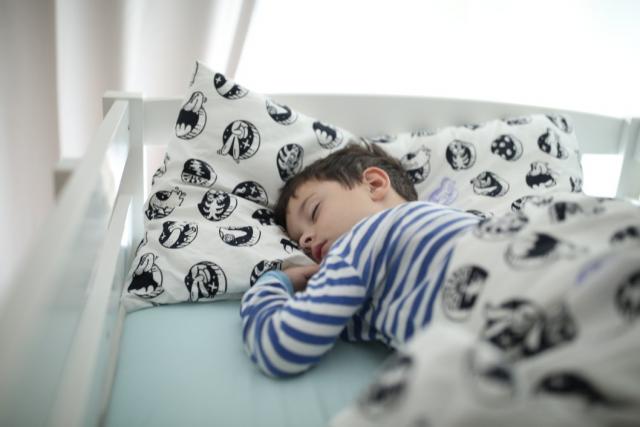Bedwetting… We have all come across it at some stage in our lives. Maybe you have memories of feeling embarrassed to find your sheets wet in the middle of the night, or your heart has broken because you recognised that same embarrassment in the face of your own child.
Though bedwetting is extremely common, it is absolutely nothing to worry about. There are many myths out there that may stress you out when it comes to managing your child’s bedwetting. Its time to debunk these myths once and for all.
1. There is someone to blame
Many believe that there is a rooted reason for bedwetting. Bedwetting, some say, is a result of behavioural issues; if a child’s bad behaviour were disciplined correctly, the bedwetting would stop.
This is totally untrue and in fact, can be a damaging approach to solving the problem of bedwetting. There is no need to point fingers. Neither child nor parent is to blame. The child has no control over this issue. While there are many reasons why children wet the bed, few can be influenced by the child or their parents.
2. Children wet the bed because they are lazy
Think about it: waking to wet sheets night after night can be extremely stressful. It is a myth that kids ignore the feeling of having to go to the bathroom because they are too comfy in bed. Bedwetting happens subconsciously therefore, no one wets the bed on purpose. Telling a child that they were too lazy to get up to use the loo will create an atmosphere of shame around bedwetting and might cause them to hide wet sheets and stop confiding in you when they have an accident. Avoid this by telling your child that it is not their fault and that bedwetting is nothing to be ashamed of.
3. Carrying your child to the loo while they sleep will stop them from wetting the bed
This is often done in a panic before parents go to bed themselves, to stop the child from urinating in their bed. The problem here is that this actually allows them to wee in their sleep, even if they are not technically wetting the bed. Reinforcing this will only make things worse and the child will get used to not waking up when their brain tells them that their bladder is full.
4. Banning drinks after a certain time in the evening will stop bedwetting
Most of us have heard this myth at some stage. Growing up, you might not have been allowed a glass of water beside your bed or been cut short drinking some milk before saying good night, all in case you ‘wet the bed’. This, surprisingly is a myth, too.
Developing positive bladder habits is a key way to stop bedwetting. If a child gets into the habit of not drinking for long periods of time, this can reduce the amount of fluid the bladder can hold. This might lead your child to feel like they have to go to the bathroom even when their bladder is not full. To ensure they develop positive bladder habits, encourage your little ones to use the loo regularly and to drink the recommended amount of water.
5. There is an instant solution to bedwetting
It would be wonderful to simply switch off the tap and achieve dry nights instantly. Unfortunately, there is no quick-fix solution to the age-old problem of bedwetting. The best way to get to grips with bedwetting is by giving your child confidence and supporting them positively. One way to do this is by using absorbent sleepwear such as DryNites®. This will build your child’s belief in themselves and encourage them on their way to a dry night’s sleep. Made with quiet materials for less rustle and designed to fit below the waist for maximum discretion under pyjamas. DryNites® are more absorbent than training pants and regular nappies with soft, stretchy sides for a comfortable fit - they look and feel like underwear so only the child will know they are wearing them!
It's important for your kids to know that bedwetting is not the end of the world. 10% of 4–15-year-olds wet the bed at some point in their little lives, making it a completely normal part of growing up.











